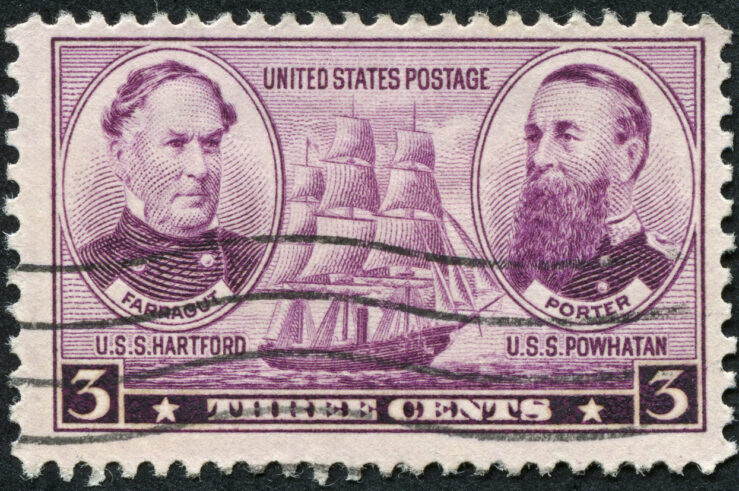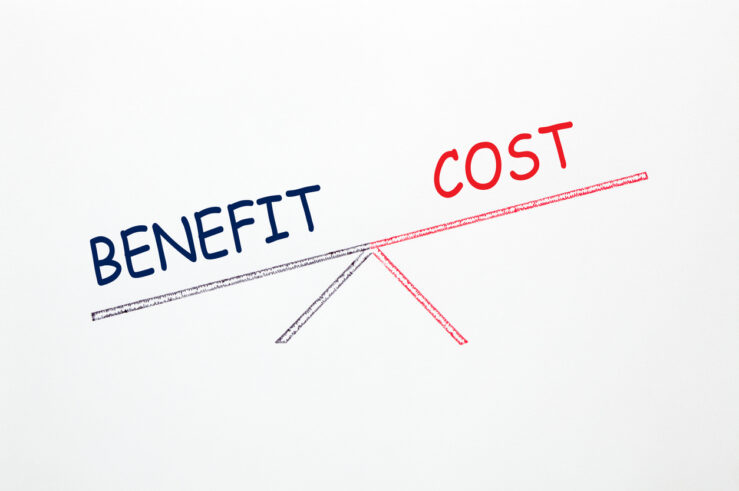Showing archive for: “Efficiencies”
Biweekly FTC Roundup: Commissioners Bite Horse Edition
The massive New Deal sculptures that frame Federal Trade Commission headquarters are both called “Man Controlling Trade.” And according to the Commission’s new Policy Statement Regarding Unfair Methods of Competition Under Section 5 of the Federal Trade Commission Act, “Three Commissioners Controlling the Economy” appears to now be one of the agency’s guiding principles. The ... Biweekly FTC Roundup: Commissioners Bite Horse Edition
The End of Reason at the FTC
In a 3-2 July 2021 vote, the Federal Trade Commission (FTC) rescinded the nuanced statement it had issued in 2015 concerning the scope of unfair methods of competition under Section 5 of the FTC Act. At the same time, the FTC rejected the applicability of the balancing test set forth in the rule of reason ... The End of Reason at the FTC
FTC Rejects Economics for ‘Fairness’
The current Federal Trade Commission (FTC) appears to have one overarching goal: find more ways to sue companies. The three Democratic commissioners (with the one Republican dissenting) issued a new policy statement earlier today that brings long-abandoned powers back into the FTC’s toolkit. Under Chair Lina Khan’s leadership, the FTC wants to bring challenges against ... FTC Rejects Economics for ‘Fairness’
FTC on the Gig Economy: The Glass is Almost Empty
The business press generally describes the gig economy that has sprung up around digital platforms like Uber and TaskRabbit as a beneficial phenomenon, “a glass that is almost full.” The gig economy “is an economy that operates flexibly, involving the exchange of labor and resources through digital platforms that actively facilitate buyer and seller matching.” ... FTC on the Gig Economy: The Glass is Almost Empty
Damn the Economics, Full Speed Ahead!
A White House administration typically announces major new antitrust initiatives in the fall and spring, and this year is no exception. Senior Biden administration officials kicked off the fall season at Fordham Law School (more on that below) by shedding additional light on their plans to expand the accepted scope of antitrust enforcement. Their aggressive ... Damn the Economics, Full Speed Ahead!
Potential Rulemaking on Commercial Surveillance and Data Security: The FTC Must Use Cost-Benefit Analysis
The Federal Trade Commission’s (FTC) Aug. 22 Advance Notice of Proposed Rulemaking on Commercial Surveillance and Data Security (ANPRM) is breathtaking in its scope. For an overview summary, see this Aug. 11 FTC press release. In their dissenting statements opposing ANPRM’s release, Commissioners Noah Phillips and Christine Wilson expertly lay bare the notice’s serious deficiencies. ... Potential Rulemaking on Commercial Surveillance and Data Security: The FTC Must Use Cost-Benefit Analysis
Dead End Road: National Petroleum Refiners Association and FTC ‘Unfair Methods of Competition’ Rulemaking
Introduction The Federal Trade Commission (FTC) has long steered the direction of competition law by engaging in case-by-case enforcement of the FTC Act’s prohibition on unfair methods of competition (UMC). Recently, some have argued that the FTC’s exclusive reliance on case-by-case adjudication is too long and arduous a route and have urged the commission to ... Dead End Road: National Petroleum Refiners Association and FTC ‘Unfair Methods of Competition’ Rulemaking
The Cracked Mirror of Monopoly-Monopsony Symmetry
Slow wage growth and rising inequality over the past few decades have pushed economists more and more toward the study of monopsony power—particularly firms’ monopsony power over workers. Antitrust policy has taken notice. For example, when the Federal Trade Commission (FTC) and U.S. Justice Department (DOJ) initiated the process of updating their merger guidelines, their ... The Cracked Mirror of Monopoly-Monopsony Symmetry
Patent Eligibility, Competition, Innovation, Congress, and the Supreme Court
A highly competitive economy is characterized by strong, legally respected property rights. A failure to afford legal protection to certain types of property will reduce individual incentives to participate in market transactions, thereby reducing the effectiveness of market competition. As the great economist Armen Alchian put it, “[w]ell-defined and well-protected property rights replace competition by ... Patent Eligibility, Competition, Innovation, Congress, and the Supreme Court
DOJ’s Threatened Reign of Error: Proposed Criminal-Monopolization Prosecutions
The Biden administration’s antitrust reign of error continues apace. The U.S. Justice Department’s (DOJ) Antitrust Division has indicated in recent months that criminal prosecutions may be forthcoming under Section 2 of the Sherman Antitrust Act, but refuses to provide any guidance regarding enforcement criteria. Earlier this month, Deputy Assistant Attorney General Richard Powers stated that ... DOJ’s Threatened Reign of Error: Proposed Criminal-Monopolization Prosecutions
The Competition and Transparency in Digital Advertising Act Is Fatally Flawed
The Competition and Transparency in Digital Advertising Act (CTDAA), introduced May 19 by Sens. Mike Lee (R-Utah), Ted Cruz (R-Texas), Amy Klobuchar (D-Minn.), and Richard Blumenthal (D-Conn.), is the latest manifestation of the congressional desire to “do something” legislatively about big digital platforms. Although different in substance from the other antitrust bills introduced this Congress, ... The Competition and Transparency in Digital Advertising Act Is Fatally Flawed
Chair Khan’s Latest Flawed Perspective on Mergers Ignores Empirics and Sound Economics
Federal Trade Commission (FTC) Chair Lina Khan missed the mark once again in her May 6 speech on merger policy, delivered at the annual meeting of the International Competition Network (ICN). At a time when the FTC and U.S. Justice Department (DOJ) are presumably evaluating responses to the agencies’ “request for information” on possible merger-guideline ... Chair Khan’s Latest Flawed Perspective on Mergers Ignores Empirics and Sound Economics
















